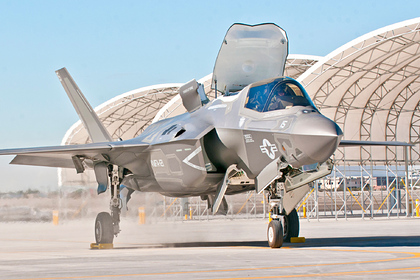The National Security Agency (NSA) was concerned about the ability of Russia and China, as well as to some extent Iran and the DPRK, to "land" American fifth-generation F-35 Lightning II fighters without a single shot, writes Popular Mechanics.
The Department of Defense of the United States fears that the increasingly multipolar world leads to the emergence of foreign cybercriminals, whose actions could endanger US weapons systems.
According to the head of the NSA cybersecurity department, Rob Joyce, quoted by Breaking Defense, the US military, having spent 20 years in Afghanistan, has not encountered a high-tech enemy, and currently "does not even think" about how their ships, aircraft and ground systems will work without a computer. "But the closest opponents have opportunities to use us when we do something wrong," he said.
Popular Mechanics notes that "almost all American weapons, with the exception of small arms and crew-operated weapons (such as machine guns), include embedded computer systems." "Computers are adding functionality, including fire control, navigation and communication. Computers are often linked into large networks, sometimes covering the entire globe, capable of giving orders, collecting data, reporting the appearance of an enemy and even coordinating an attack," the newspaper writes.
According to the magazine, the use of computer vulnerabilities by US adversaries can disable American ships, planes and satellites. "The NSA wants the military-industrial complex to take vulnerabilities in cyberspace seriously," the newspaper writes.
In August, Breaking Defense reported that the Integrated Operational Data Network (ODIN) of the F-35 Lightning II fighter jets has advantages over the Autonomous Logistics Information System (ALIS). One of the main differences between the first and the second is the use of cloud technologies in ODIN, which allow developers to quickly add software updates. The disadvantages of the new system are its greater openness, which theoretically increases the risks of unauthorized access. The publication notes that it is likely that the United States and the United Kingdom will gain advantages in using ODIN over other "staunch allies".
Ivan Potapov

